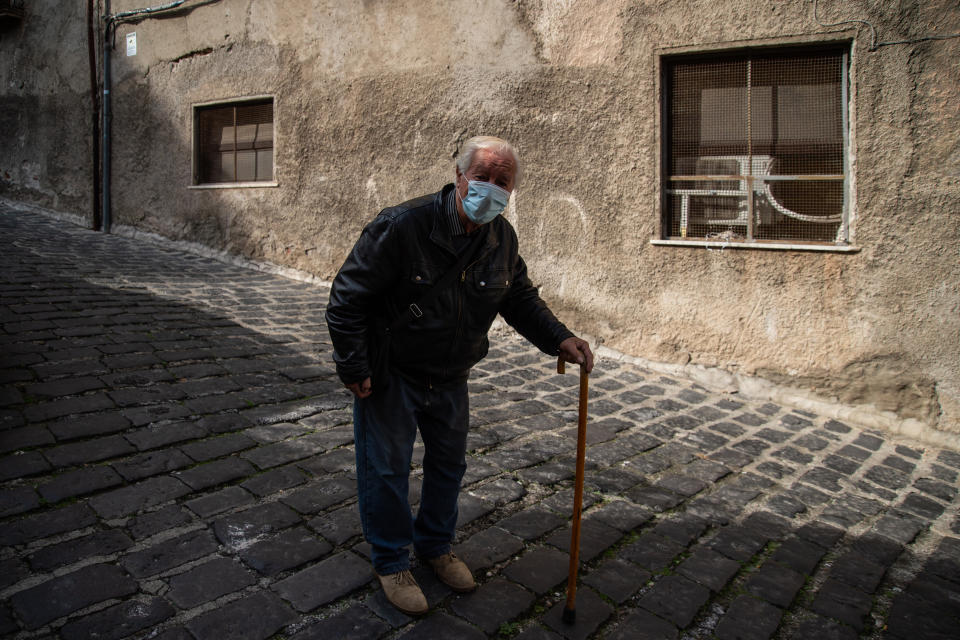Your government wants you to have more babies

Singapore recently announced that it would be offering incentives to citizens willing to have babies during the pandemic. The tiny island city-state is offering a one-time USD 2,198 grant to help families bear child-raising costs, for a child born between October 1, 2020, and September 30, 2022. This would be on top of an existing $7,330 bonus that couples receive when they have a baby in Singapore.
This move comes at a time when many Singaporeans have put their baby plans on hold due to the pandemic. A survey suggested that three people out of 10 were not keen on having babies - major reasons being uncertainty over financial stability and safety concerns due to the virus. Fertility rates have been falling rapidly in Singapore, which is already on the verge of a demographic time bomb.
The pandemic has proven to be a dampener on people’s plans of having children, especially in rich countries, further exacerbating a growing demographic crisis. A survey conducted in June 2020 by the Guttmacher Institute of American women found that more than 40 percent of women surveyed changed their plans of when to have children or how many children to have, because of the pandemic. One-third of women (34 per cent) planned to get pregnant later or have fewer children because of the pandemic. Women were also having more difficulties getting contraceptives.
A total of 10 billion people are expected to be living on earth by 2050. With humans living longer, experts estimate that the number of elderly people per 10 working-age people will nearly triple from 20 to 58, by 2050. Many Governments are, hence, incentivising people to have more babies.
More babies, more incentives
Singapore is not the only country that is incentivising people to have more babies. In a tiny municipality in Finland called Lestijärvi, with a population of just 750 people, only one child had been born in 2012. Alarmed at the falling population rate, the municipality decided to pay Eur 10,000 for each baby, paid to the family over a ten year period. This approach seems to have worked as 55 new babies were born between 2013 and 2018, as compared to 33 in the previous six years.
Finland already pays a maternity benefit to expecting mothers, apart from providing a baby box starter kit which contains supplies such as bodysuits, nappies, bathing products, toys, and a small mattress, among others, and is a huge hit among expecting families. This has also helped Finland achieve one of the lowest infant mortality rates in the world.
Japan, the country with the highest aged population, is facing a looming fertility crisis. By 2030, one in every three people will be aged over 65, and the pandemic has made things worse. As per estimates, Japan is expecting around 8,45,000 newborns this year – this is 20,000 fewer than last year and a continuation of the free-falling birth rate in the country. The pandemic, and the financial constraints it has brought with it, has made it even harder for young people to get married and have children.
To combat this, Japan pays families child benefits depending on their financial status - for families earning income below the threshold level, JPY 15,000 is paid monthly for children below 3 years-old, JPY 10,000 from age 3 to elementary school graduation (for the first two children): and JPY 15,000 (for the third and subsequent children). Persons who earn incomes above the threshold level are paid a special interim allowance of JPY 5,000 per month for each child until 31 March following their 15th birthday.

Italy has the second highest aged population in the world - this and the strain placed on healthcare facilities, was a major reason why the country saw such a high fatality rate during the early days of the pandemic. As per EU statistics, the median age in Italy is 45.9, higher than the European median of 42.8. In June this year, Italy’s Parliament approved the Family Act to support parenting and combat the falling birth rates. This Bill will establish a monthly universal allowance for all dependent children, provide incentives to women with care responsibilities to enter the workforce and reform different types of family leaves.
In 2018, Italy also launched the ‘Land for children’ plan, whereby families who go for a third child will be offered free farmland. This is to take care of both the country’s dwindling population and also ease the state’s burden to maintain its unused farmlands.
Even China is suffering the consequences of an ageing population brought on largely because of its draconian, more than three decade long one child policy. The country is facing a population decline and one that is ageing rapidly – by 2050, nearly a third of the country’s population is expected to be above 60.
The Government has loosened reigns over the number of children a family can have, and couples can now have two. Many provinces and municipalities have also extended paid maternity leave, education guarantees and housing allowances to encourage more couples to have babies. In Shihezi in China’s northwestern Xinjiang Uygur Autonomous Region, mothers who go for a second child are offered subsidies up to 1,000 yuan (147 USD) and babies will also get free milk formula for up to three years.
This dip in birth rates in wealthy countries is in contrast to poorer countries which is seeing more babies born this year, with issues of access to contraceptives and safe abortion facilities increasing due to the pandemic and lockdowns. While Kenya saw a surge in teenage pregnancies, the UN predicted that India will see a baby boom with over 20 million births since the declaration of the pandemic - the highest number of births in the world.

 Yahoo Finance
Yahoo Finance 